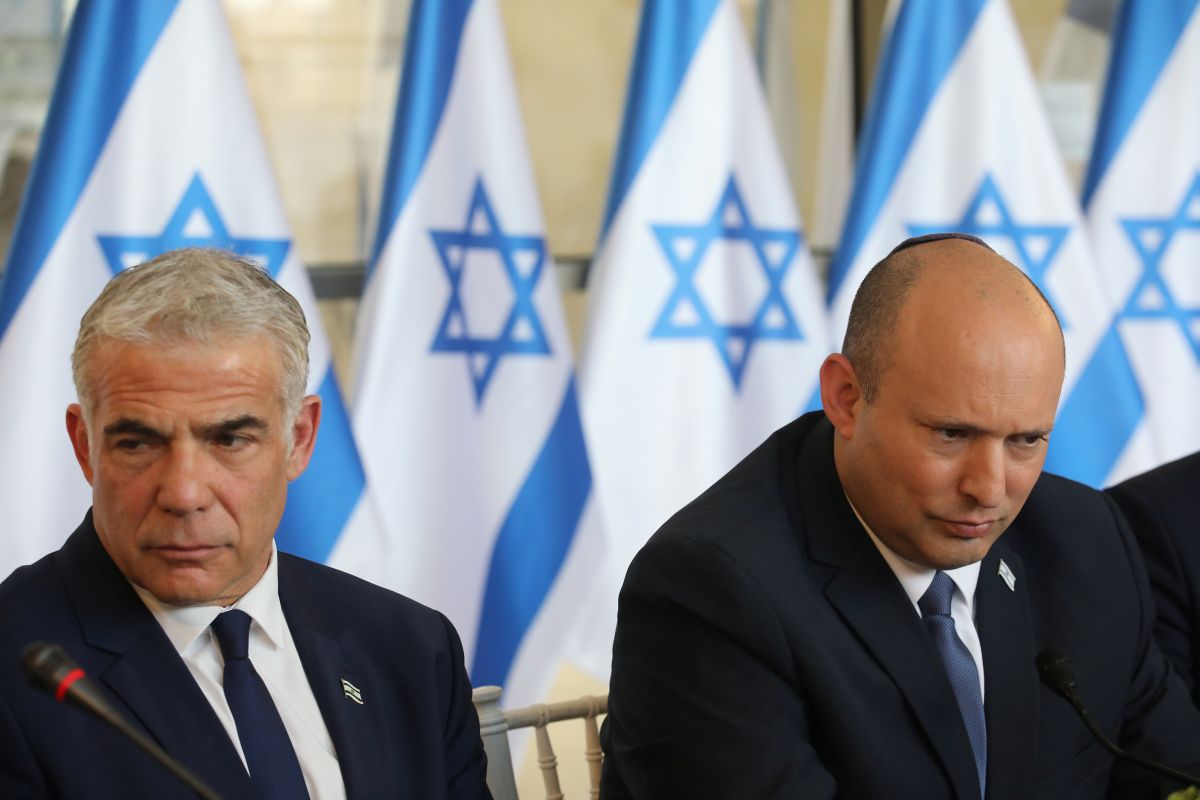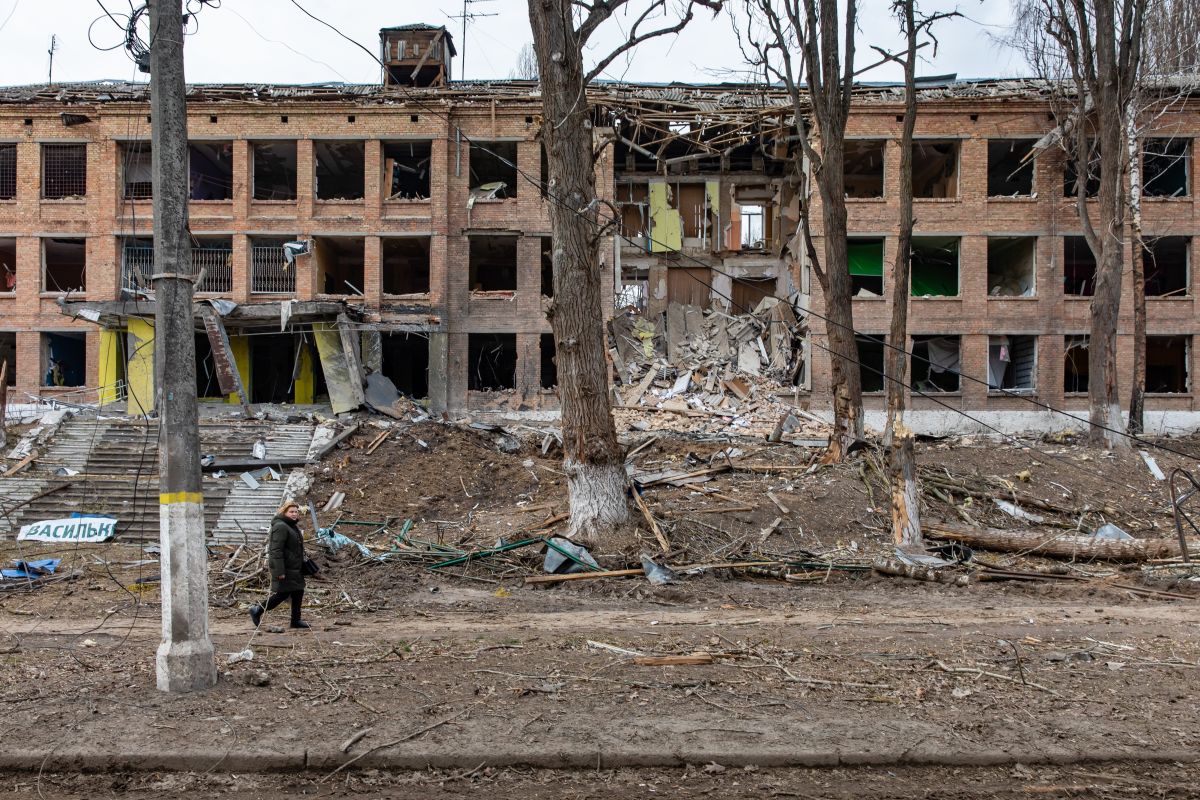On the Brink: A Year of the "Coalition of Change" in Israel
The cabinet of Naftali Bennett and Yair Lapid, established in June 2021, is in crisis after the loss of its parliamentary majority in April. The divergent interests of the coalition members have generated further conflicts over internal and security affairs, thus destabilising the government. While the government remains more effective in foreign policy than domestic matters, it is mainly thanks to regional cooperation. The weakness of the coalition has increased the probability of early parliamentary elections.
 POOL / Reuters/ FORUM
POOL / Reuters/ FORUM
The Israeli government led by Prime Minister Bennett comprises a total of eight parties: the right-wing New Hope, Yamina, Israel Our Home, and Blue and White, the centrist Yesh Atid, the left-wing Labour and Meretz, and the Arab Ra'am. In accordance with the coalition agreement, Bennett will be replaced as prime minister in 2023 by the current foreign minister, Yair Lapid. The opposition, formally led by former PM Benjamin Netanyahu, includes Likud, the religious parties Shas and United Torah Judaism, the nationalist Religious Zionism, and the Arab bloc Joint List.
State of the Coalition
The main weakness of the coalition was its parliamentary majority in the Knesset, with just 61 seats out of 120. The opposition rejected virtually any cooperation with the government, even bills falling along their political line. In addition, Likud and its allies pressured right-wing parliamentarians in the coalition to leave it. With virtually no chance to reach agreement with the opposition and given the deep divergences between the coalition parties (and even individual MPs), the government struggled to maintain a majority during voting. This was particularly visible in ideological matters, especially decisions on region-secular policies or Israeli-Palestinian issues. In April, Idit Silman (Yamina) left the coalition. The official reason was her opposition to the health minister’s decision regarding kosher regulations in hospitals, but the MP was also the subject of intense pressure from the right-wing opposition. In the following weeks, subsequent MPs from various factions declared they would limit support for the government if their political demands were not met. Ra'am temporarily suspended participation in the coalition as a form of protest against the brutality of police during Ramadan in Jerusalem. Laws that require cyclical renewals proved to be a particular challenge, especially those regarding the status of the Jewish and Palestinian population in the West Bank. On 6 June, the government failed to prolong the law extending state law (e.g., criminal) to Israelis living in settlements in the occupied territories. A pair of coalition MPs voted against it, which triggered a government crisis and highlighted the lack of cohesion within the coalition.
Government’s Internal and Foreign Policy
The establishment of the government last June ended a political crisis that started in 2019 and allowed the resumption of the functioning of the institutional apparatus and implementation of delayed decisions (e.g., nominations to state positions). The coalition adopted a budget (overdue since 2019), thus stabilising the public finances, and allocated record funds for the Arab community in Israel. At the same time, the government’s trouble in implementing reforms of Israeli “difficult matters”, such as the role of religion in the state (e.g., public support for progressive streams of Judaism) or conflicts between the Jewish and Arab populations (e.g., property disputes in Negev, the bad security situation in Arab towns, and Israeli settlement in the West Bank). A constant challenge for the Israeli government continues to be the growing and high costs of living (especially housing prices) and the risk of an economic slowdown related to the global situation.
Regarding the Israeli-Palestinian situation, the Bennett-Lapid government improved relations with the Palestinian Authority (PA), including resumed contacts at the ministerial level, and maintained the truce with Hamas. At the same time, the government’s image was undermined by a wave of terrorist attacks (e.g., in Be’er Sheva and Tel Aviv) in which 18 Israelis were killed. Countermeasures taken by the authorities, including military operations in the West Bank resulted in the deaths of dozens of Palestinians, seriously contributing to increased tensions. Additional destabilising factors were protests in Jerusalem related to national and religious holidays and decisions regarding the displacement of the Palestinian population and the expansion of Jewish settlements in the West Bank.
Israel also benefited from the favourable attitude of the Biden administration in the U.S., which decided not to reverse Trump-era decisions (e.g., opening the U.S. consulate in East Jerusalem). In its relations with the U.S., Israel tries to focus mainly on Iranian policy and the issue of the nuclear agreement (JCPOA). In other areas of foreign policy, the priority was to develop relations with Arab states within the normalisation process, for example, Israel signed a free trade agreement with the UAE. At the same time, it was not possible to extend the process to new countries. Israeli-EU relations also improved, mainly through regional cooperation (especially in energy), as did Israel’s relations with Egypt and Jordan, although the latter was often stirred by the situation in Jerusalem. A new quality is the renewal of political relations with Türkiye (formerly Turkey), which were in crisis in the previous decade. Israel’s president, Isaac Herzog, visited that country in March. The government also tried to pursue cautious policy towards the Ukrainian-Russian war.
Conclusions and Perspectives
Despite positive changes in domestic and foreign policy, the Bennett-Lapid government is in danger of collapse. The loss of its parliamentary majority paralyses the chances of reforms. Attempts to stabilise the government entail the need to reconcile contradictory political lines, which some coalition partners no longer are willing to do.
The weakness of the coalition does not mean that the opposition can smoothly replace the current government within the present Knesset. The right-wing religious bloc led by Netanyahu would have to collect an additional nine votes while excluding cooperation with Arab parties and the left. The aim of the opposition is therefore to persuade the right-wing parties to break the coalition, and then to dissolve the Knesset. Just one of the coalition leaders could do that, but for these politicians, for whom the removal of the former PM was the main goal of the current alliance, it would be a costly move politically and in terms of image. Also, the fear that new elections would increase the chances of a new Likud government will discourage some MPs and parties (such as Joint List) from dissolving parliament, despite their opposition to the current government policy.
The latest predictions indicate that in the event of an election being called, the return to power of the right-wing coalition with Netanyahu as prime minister is not a foregone conclusion. Although polls indicate that Likud would win around 35 seats (current coalition partner Yesh Atid would be second with 20), together with allied religious and nationalist parties it would not control more than 60 seats. Likud still has the greatest potential to mobilise the electorate, but if it cannot guarantee a minimum parliamentary majority, the participation of parties in the current coalition would be necessary. If their leaders were to uphold their stance of not joining a Netanyahu-led government and the reactivation of the broad cabinet fails, then Israel would face another political crisis and an extended electoral cycle. In turn, the return of Netanyahu to the post of prime minister would strengthen the extreme political forces in Israel and would also increase the chances of systemic changes that would strengthen the prime minister’s position.
Despite the internal difficulties, the government will continue its active foreign policy, especially in the regional dimension. In the context of Poland, relations between the two countries were aggravated by the diplomatic crisis in August 2021 following Israeli criticism of an amendment to the Polish Administrative Procedure Code regarding re-privatisation issues. Closer cooperation with the Polish authorities took place in connection with the outbreak of the war in Ukraine, particularly regarding the evacuation of Israeli citizens from Ukraine and the distribution of Israeli humanitarian aid. However, this has not translated into rebuilding the dialogue at the political level. During Minister Lapid’s visit to the region to address the situation in Ukraine, he did not visit Poland. A chance for renewed cooperation will be the reconstruction of Ukraine, as it is the largest European recipient of development aid, including from both Poland and Israel.





